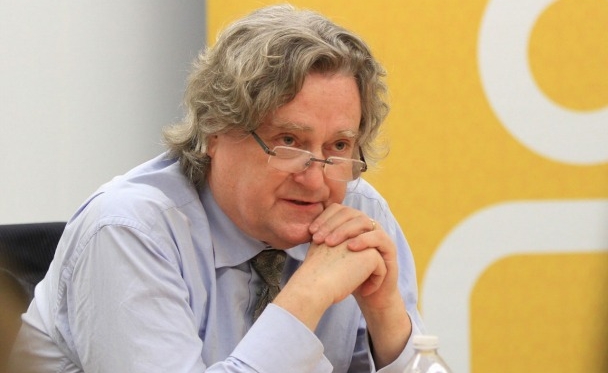
The Practice of Cultural Relations in a Conflict Zone with Paul Smith, British Council USA Director
The USC Center on Public Diplomacy welcomed Paul Smith, USA Director of the British Council. Paul Smith has been Director of the British Council in the USA and Cultural Counsellor at the British Embassy in Washington, DC since August 2012.
He joined us for a discussion about his experience as British Council Director in Afghanistan, paying particular attention to why cultural relations matter and how to achieve such relations in unstable countries.
About Paul Smith
Paul Smith joined the British Council in 1983 and has had postings in Kano and Lagos, Nigeria; Burma; Chile; Germany and Bangladesh, and served as Director of the British Council in New Zealand and in West India, where he was based in Mumbai. From 2005 to 2010 he was Director of the British Council in Egypt and from 2010 to 2012, Director of the British Council in Afghanistan and Cultural Counsellor at the British Embassy in Kabul. He was born in 1956 and educated at Queens’ College Cambridge. He was awarded the OBE in 1999.
About the British Council in the US
The British Council creates international opportunities for the people of the UK and other countries, and builds trust between them. The Council calls this cultural relations. They are on the ground on all six continents of the world, with more than 190 offices in 110 countries and territories and engage with some 600 million people every year – one in ten of the world’s population. For more information about the British Council, please click here.
Event Summary
Paul Smith, USA Director of the British Council, joined us for a CPD Conversations in Public Diplomacy. This discussion was focused on his experiences as the British Council Director in Afghanistan and Egypt, paying particular attention to why cultural relations matter and how to achieve such relations in conflict regions.
Smith explained that the real challenge of public diplomacy is looking at as a long-term commitment. Moving from discussion into action is going to take time, listening, relationship-building, and cultural understanding.
Drawing on his experiences in Afghanistan, Smith emphasized that that culture cultural relations are a necessary component to post-war rebuilding and preventing future conflict. By understanding the cultural context of the ‘other side,’ you can create a collaborative environment in which public diplomacy goals may be achieved.
The real breakthrough, however, is when creators and creative spirits work together to “co-produce”. This means they are not just trying to change the opinion of the other, but that they are showing a willingness to change themselves as well. By getting to the root of the division (often based on religion or history) public diplomacy practitioners can build cultural sensitivity and create more successful partnerships based on trust rather than suspicion. Smith shared specific examples of his work in Egypt and Afghanistan between 9/11 and the Arab Spring and how the long-view of cultural relations has been both challenging and rewarding in his practice.
Smith, the newly appointed USA Director of the British Council, looks forward to collaborations between the U.K. and the United States, as well as working closely with diaspora populations. He went on to share that there is considerable planning and thought into matching the right communities with the British Council programs. This allows for getting the right audiences engaged.
Visit CPD's Online Library
Explore CPD's vast online database featuring the latest books, articles, speeches and information on international organizations dedicated to public diplomacy.







